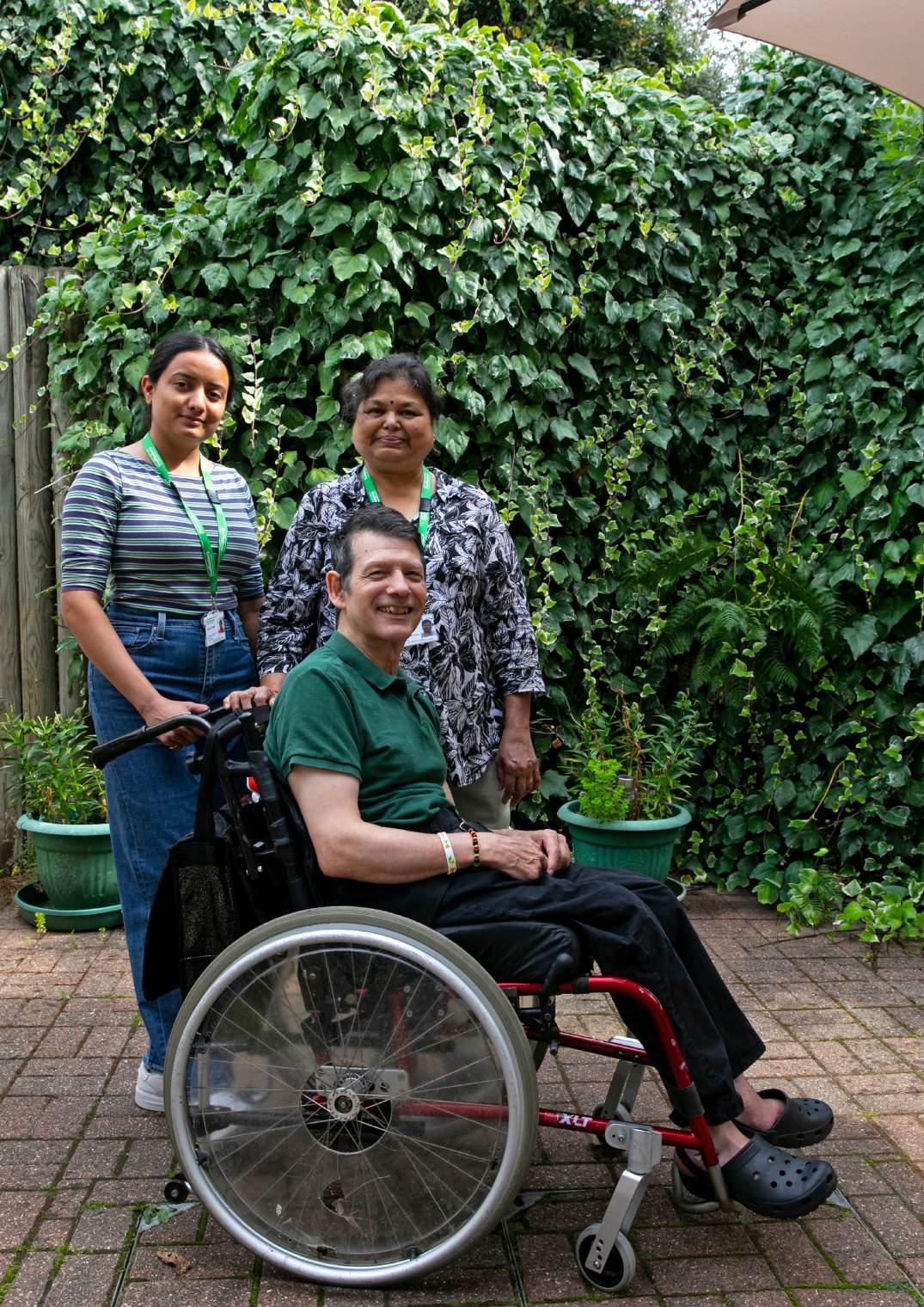
See how your support impacts the lives of the people with disabilities we care for.



See how your support impacts the lives of the people with disabilities we care for.


I’m delighted to introduce this issue of Shaftesbury News. You might notice something a little different about this issue –we’ve given it a makeover! The new format provides more incredible stories and voices from across Shaftesbury. We hope you enjoy this new look and feel as much as we do.
You may have spotted the winged statue of Anteros. Did you know that this sits atop the Shaftesbury Memorial Fountain in Piccadilly Circus in London? It is popularly known as Eros but the memorial was erected to commemorate our founder, the 7th Earl of Shaftesbury.
As always, it’s a privilege to share with you the remarkable stories of people across our communities – stories of courage, resilience and hope.
This magazine is about celebrating the people we support and the dedicated teams and communities who stand alongside them, including you, our loyal supporters.
Until next time,
Sally Chivers Chief Executive, Shaftesbury
3
Meet our star fundraiser Carmela Meet Carmela, who recently became the youngest ever recipient of an MBE.
4 Home again
Malcolm shares how our specialist brain injury service supported his wife, Eileen, after two devastating strokes.
6 Making lives add up
Learn about our new Life Sum campaign and hear from Catherine, Phil and Tina on what makes their life add up.
8 Shaftesbury support helps children thrive How our Thrive service in the north-east is transforming the lives of children with complex needs and their families.
9 Building experience for the future Students at Shaftesbury Millie College gain confidence and skills through tailored work experience.
10 Shaftesbury chef puts choice on the menu Meet Marie, the chef revolutionising mealtimes at Shaftesbury Brookside.
10 Helping make holiday memories
How the people we support enjoyed summer breaks across the UK.
11 Introducing Shaftesbury
Suffolk’s vital dementia support
A new county-wide service offering guidance, care and reassurance for people with memory concerns and dementia.
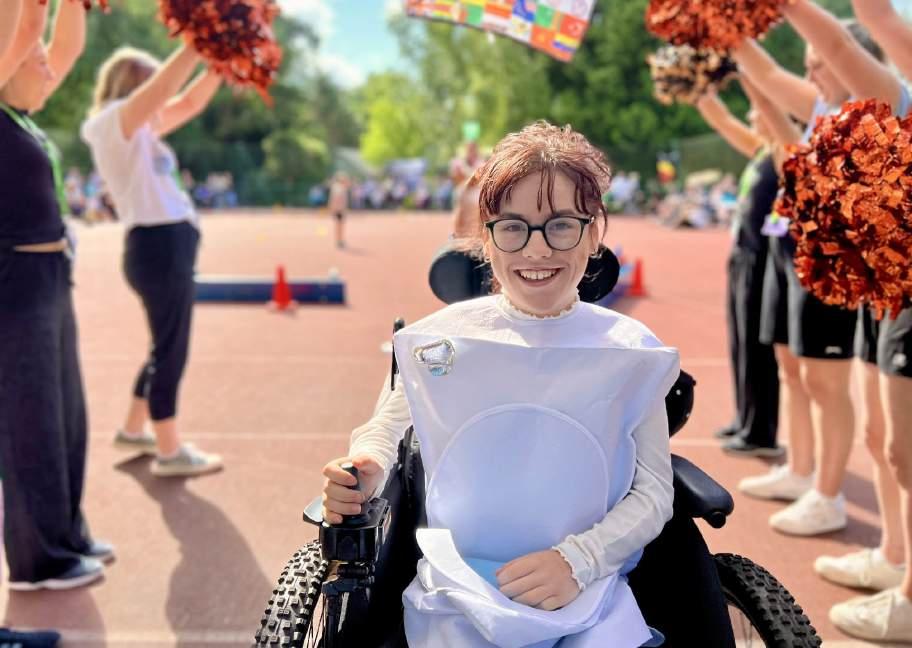
Shaftesbury’s star fundraiser this issue is Carmela, a student at Shaftesbury Victoria School in Poole.
Carmela is 11 years old and lives with congenital muscular dystrophy, a progressive muscle-wasting condition which affects her movement, heart and lungs.
Despite her personal challenges, she continues to defy limits and has become an incredible fundraiser. She’s raised more than £400,000 for charity by walking and wheeling hundreds of miles, often dressed as her favourite hero, Wonder Woman. She has received national attention for her accomplishments and she is not done yet! In June, her efforts received well-deserved recognition, when she became the youngest recipient of an MBE in the King’s Birthday Honours.
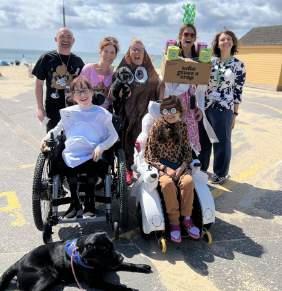
and friends.
Carmela recently fundraised for Shaftesbury Victoria School and took on a five-mile walk and wheel from the school to Bournemouth Pier and back. This was an incredible achievement and will help towards buying new accessible wash/dry toilets for the school to provide dignity, independence and practical assistance for students who need support.
‘I just want to make a difference to the disability community, to be able to show them: You’re strong, you can do whatever you want.’ Carmela
In a nod to the cause, it was dubbed the ‘Poo Plod’ and Carmela made the journey dressed as a toilet, with her mum Lucy alongside her in an inflatable poo costume.
Shaftesbury Director of Education Adele Audin said, ‘We’re incredibly proud of Carmela and her mum, Lucy, for organising such a wonderful challenge.
‘Carmela’s thoughtfulness, energy and dedication is truly inspiring. It’s heart-warming to see a young person take such initiative to help others.’
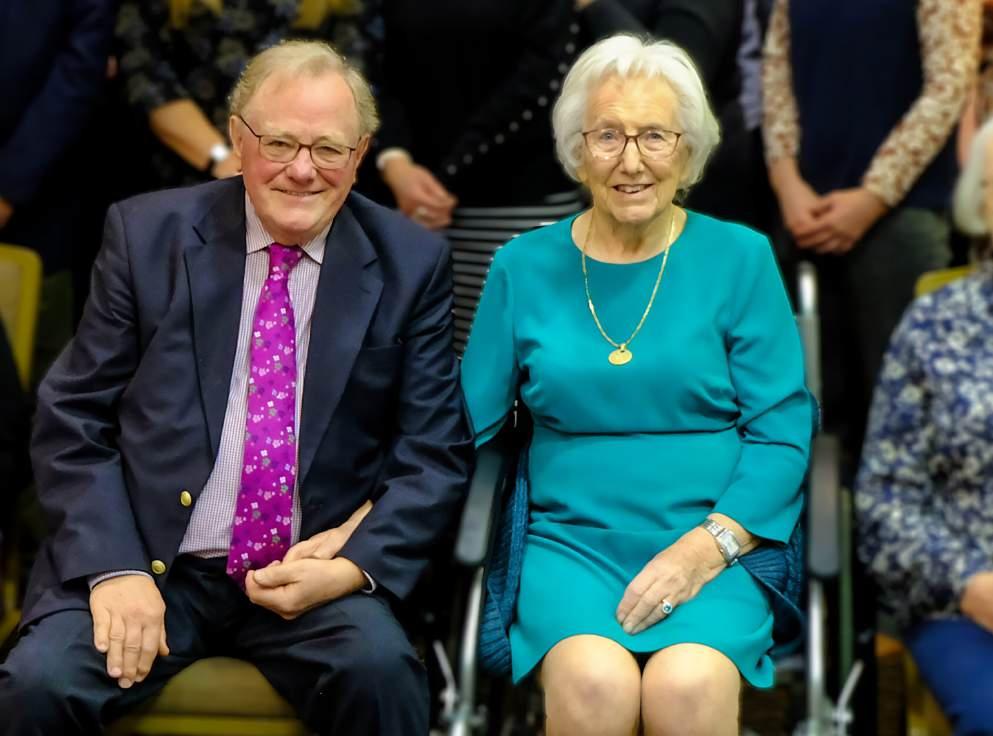
Following a stroke, Eileen, 90 and her husband Malcolm, 80, faced almost overwhelming challenges. But a referral to Shaftesbury Icanho, our specialist brain injury rehabilitation service, offered a light at the end of the tunnel. We talked to Malcolm about their story.
What led you to need stroke support from Shaftesbury Icanho?
‘Eileen was always extremely healthy but had a stroke in February 2020, which was devastating. She couldn’t speak for a couple of weeks and spent six weeks in hospital. She was discharged three days before lockdown, as the consultant said she’d be safer at home than in hospital. The original plan was for carers to come to our home four times a day, but 24 hours before her discharge, because of Covid-19, I was told that they couldn’t provide it. When I asked what the options were. They said: ‘leave her here or take her home’.’
How were you managing stroke care?
‘We had some limited support from the community team, but I was pretty much caring for Eileen alone. Then at Easter 2022, Eileen had a second stroke, which put her in hospital again for around three weeks.’
When did you get help from Shaftesbury Icanho?
‘When Eileen was in hospital the first time, they were talking about referring her to Shaftesbury Icanho but the referral was delayed and was finally made after her discharge. But she got help at Icanho for about 12 months, which was fantastic. Then came the second stroke.
I spoke to Icanho’s manager, who said I could refer Eileen back, so she had about another six months of therapy.’
How were you both coping with all these challenges?
‘Well, Eileen was always very strong prior to her first stroke, like a woman 20 years younger than her age, physically and emotionally. She was also very active and involved in everything. She loves gardening and set up the garden club in the village. In her professional life, she had a 30-year association with the police as a special
‘Things felt much worse after the second stroke’
constable and retired with the rank of second in command. However, in terms of how things felt emotionally, it felt much worse after the second stroke. She felt very distant.’
Did Shaftesbury Icanho help with that?
‘Yes, the social worker explained about “ambivalent loss”. This is a profound sense of loss and sadness that is associated not with the death of a loved one but can be a loss of emotional connection when a person is physically still present. I was helpfully given some academic articles to read. And because of my background as a solicitor and judge, I was used to reading medical reports and could take this information on board.’
What happened in the second round of therapy?
‘Well, the first stroke hit one side of her, but the effect of the second stroke was more spread out and her speech had become significantly worse. It meant her earlier treatment at Shaftesbury Icanho was all set back and her mobility had decreased, but we managed to largely keep her out of a wheelchair.’
What progress did Eileen make at Shaftesbury Icanho?
‘It’s been down to Shaftesbury Icanho that she’s been able to get to where she is today and return home. This has made a massive difference to her – we’ve got a lovely house and there’s so much of her here, both in the house and garden, which she designed and did a lot of the work herself. For me, what’s important is keeping her in her own surroundings, with her own things around her, even the dog! It’s helped her enormously and I’m sure this wouldn’t have been possible without Shaftesbury Icanho. I felt by the time Eileen left Icanho, I’d got more of ‘my’ Eileen back – significantly more of the Eileen I knew before her first stroke. Emotionally now she’s much more connected to me than she was during the first three years following her strokes. I feel that Icanho has given me a much better approach to Eileen’s difficulties.’
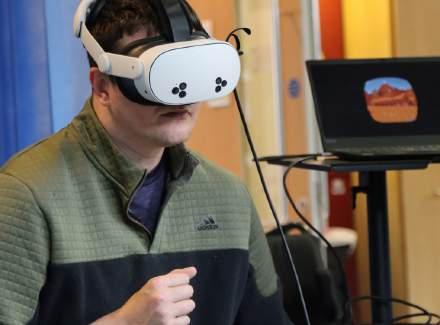
A client at Shaftesbury Icanho.
What do you think is special about Shaftesbury Icanho?
‘I would say a very, very big thing is the way the therapy team works together. It’s a real contrast with other services. Shaftesbury Icanho’s approach benefits the patient and the carer because you’re not having to constantly repeat the same thing to different people.’
A client with staff at Shaftesbury Icanho.
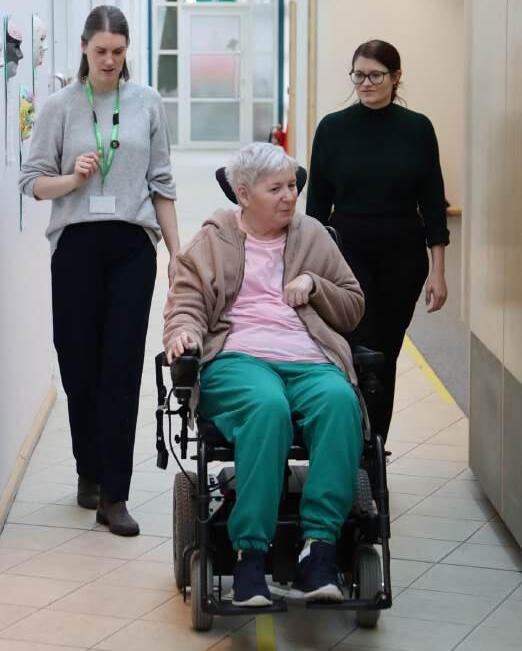
Please donate today to help more people with brain injuries. You can complete the enclosed form, visit shaftesburygroup.org/autumn-news or call 0191 500 9176.
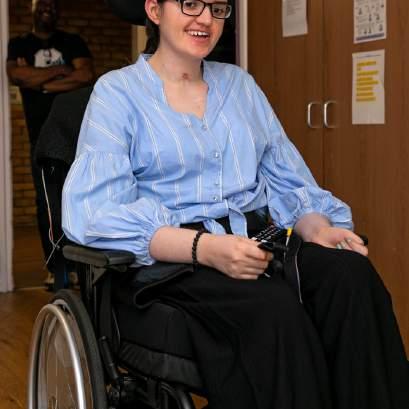

RMany things shape our lives and make us who we are. At Shaftesbury, we call this a ‘Life Sum’ and they are at the heart of how we support the people we work with –and the great thing is, they work for everyone.
ight now, many people with disabilities face issues that make life difficult. Isolation and lack of employment, housing and education opportunities deeply impact people’s wellness and health.
Research shows that four times as many people with disabilities feel lonely ‘always’ or ‘often’, compared with non-disabled people.*
When people are socially isolated their life and health outcomes are lower. But research and all we have experienced in recent years, shows that when people enjoy good community connections, their health, life outcomes and wellness are far stronger.
That is why we recently launched a new national Life Sum campaign to get you thinking about what makes your own life add up and how you can help people with disabilities lead a life that adds up for them.
Some of the people we support in our services across the country shared their Life Sums and stories with us. Let us introduce you to them:
Catherine lives at Shaftesbury John Grooms Court:
‘What adds up for me is being able to enjoy my interests – going to live music or going to see animals. I also like snooker and have been twice, but I’d really like to see it live again. I find music relaxing, especially Daniel O’Donnell. When I was younger, I had a cassette Daniel happened to be on. I’ve liked him since I was 13 and I’m now 40!
I really enjoy being a voice for disabled people, not only for myself, but for others too and I really like feeling empowered to a make a difference.
Transport is a barrier to accessing something you enjoy doing. It makes you feel strange when you can’t do something you love and you feel isolated. It physically and emotionally affects you if you can’t do something you like. If people can go out and about and do more, it would make a big difference.’
Catherine
+ Cats
+ Scrabble
+ Shopping
+ Daniel O'Donnell

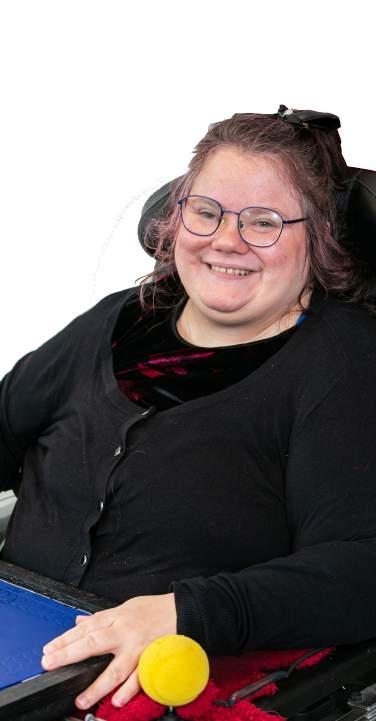
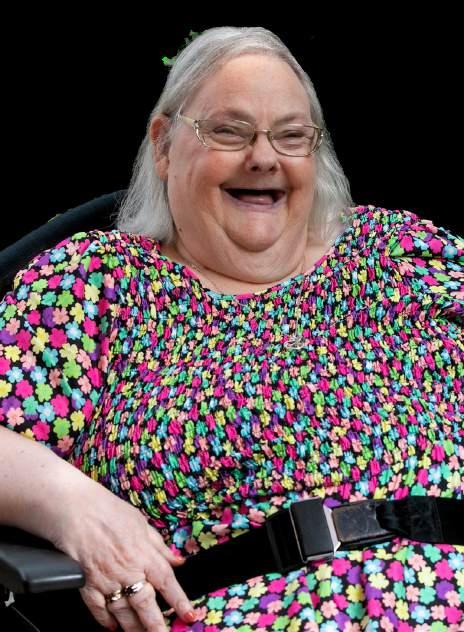

Cooking
Knitting
Stairs
Avocadoes


Tina lives at Shaftesbury Bradbury Court:
‘I am very good at expressing myself and knowing what I want. I need to feel safe, well cared for, not alone. I’ve been here two years and don’t ever want to leave.
I was born prematurely by two months. I’ve got cerebral palsy, but I was mobile until I was 24. Then I went into a wheelchair. When I was born the doctors gave me six months. I’m 72 now!
I went away to school at 12. It was my choice – I’m very independent. I didn’t want to go into a home, but it’s the best thing for me. I would get lonely otherwise. I feel safe living here.
The staff are lovely and they’re really kind to me. I have friends here. Who wants to feel alone at my age?
I’ve done everything I wanted to do. If my day comes tomorrow then I’ve been very, very lucky. I’m just really happy here. This is my home now.'
Last year, we launched Thrive – a children’s service in the north-east developed in response to families who had struggled for years. It grew rapidly and now provides vital help to 23 children with disabilities and their families.
Ayear in and having started with just one child, Thrive’s support now impacts around 100 people a week, including the children, their families and carers
The service works with young people with significant learning disabilities and complex physical needs, helping them build their confidence; develop independence, social and communication skills and offers much-needed respite for parents and carers.
A personal approach is at the heart of how Thrive supports children with disabilities. The team visits the home to meet parents, carers and the child to work out what they need.
Thrive’s support for Lee*, a teenager whose conditions include profound learning disabilities and autism, shows how well a personalised approach works.
When Thrive started working with him, Lee had difficulty regulating and controlling his emotions and needed support around school, so the team focused its efforts there. Consistency was important. Lee had the same teaching team at school, so the Thrive team did the same, sending the same staff every week.
The difference Thrive has made for Lee and his family is clear. Senior staff member Nichola said: ‘At our last meeting with Mum and Dad, they said they feel they’ve got their life back and they couldn’t thank us enough. It’s fantastic to see.’

‘The care packages make me proudest. A lot of these parents and carers have waited up to two years for support, with massive demands on their lives in trying to support their child.’ – Nichola
Fun is a priority for Thrive. So far, there have been visits to the beach, parks and the Alan Shearer centre – which has accessible activities and sensory and hydrotherapy pools.
For some children activities like this are often out of reach due to travel costs.
Thrive will keep growing, but that’s not all. Next for Shaftesbury in the north-east is a children’s home offering short respite breaks.
Nichola said: ‘We’re working to move that forward, but it takes time and careful planning. We’re keen to support as many young people as possible as

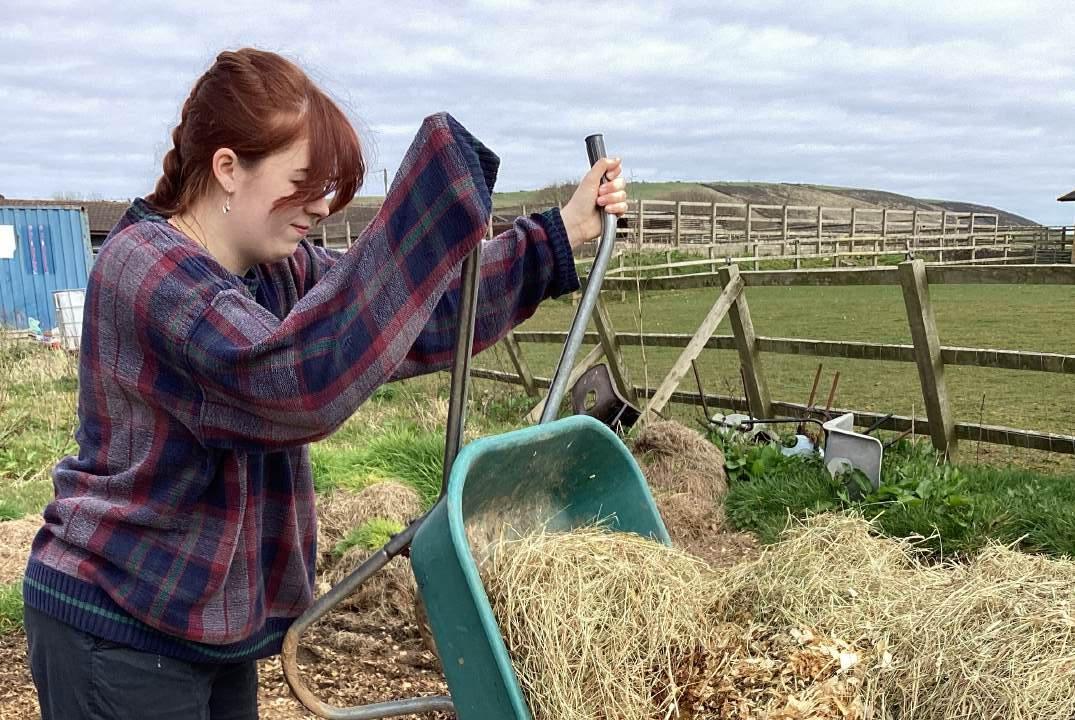
Work
experience is a great stepping stone into
the world of work, helping to connect learning to real work situations.
For young people with additional needs, it can be life-changing. Offering opportunities tailored to individual needs and aspirations builds confidence, develops essential skills and prepares young people for their next steps.
At Shaftesbury Mille College in Dorset, students engage in practical enterprise activities – from animal care and horticulture to catering, retail, conservation and events. With 350 acres of space, it’s the perfect place to discover what really sparks their interest.
For Liv, that spark was animals. After discovering her passion during college sessions, she was encouraged by staff to take the next step and secured work experience at the Margaret Green Animal Rescue Centre. Now, every week, she goes there and helps care for the animals, from cleaning out their enclosures to providing companionship.
With each passing week, Liv has been building her skills and confidence, which is so important for the young people we support.
The college works closely with external partners to ensure students have opportunities to gain vocational skills.
The college’s education, enterprise and visitor services manager Annabelle Pearsall said: ‘Big changes are not required to work with students
Liv doing work experience.
‘It's beautiful and quiet and I love being surrounded by animals. I would love to continue volunteering there and am interested in seeing their other site for dogs too.’ – Liv
with additional needs. By offering a work experience placement for a short period of time, businesses can understand the needs of the individual and adapt or carve out tasks.’
The college also supports students to develop employability skills – a crucial part of their preparation for further training or employment. When opportunities came up to be involved in work-related learning at the college’s on-site café, Faith’s Kitchen and shops at the Courtyard Craft Centre in Lytchett Minster, students were encouraged to apply for positions.
By experiencing the whole recruitment process, they learned about applying for a job, from filling out an application form to shortlisting candidates and mock interviews.
Alongside their college studies, hands-on work experience – both internal and external work placements – play a key role in helping students grow in confidence, build real-world skills and shape their plans for the future.
What are you having for dinner today? It is easy to take the choice for granted. But many people with disabilities don’t have a choice in what they eat and meals can be disappointing.
When trained chef Marie arrived at Shaftesbury Brookside last year, she was determined to make meals enjoyable and healthy for the 23 people at our north London residential home.
After listening to the people we support, she devised a new menu using fresh ingredients for meals like mushroom, spinach and bacon tagliatelle, a vegetarian option, a Sunday roast and sweet and sour chicken, which quickly became a favourite.
Supper became a lighter, healthy meal at the residents’ request. Importantly, every dining table now has a menu card with a photo of each meal for anyone who prefers to use pictures.
Deputy manager Shukri was so impressed by the huge difference Marie’s approach made to the people living at Shaftesbury Brookside that she nominated Marie for a local council catering award, which she won!
Her win was down to working closely with the residents on their choices and the way her new menus benefitted them. Shukri said: ‘People’s digestive and overall health has improved. Many of our people are wheelchair users and some have lost weight or are just feeling better.’
Marie feels she gains a lot from her work. She said: ‘I find it very rewarding when residents come to me and say they really enjoyed their dinner. They give me lovely feedback.’
Carlos in London.
Many of us head off on holiday in the summer and it’s no different at Shaftesbury.
People we support across our services have been getting away on their summer holidays. Adrian, from Shaftesbury Brodawel, visited Ironbridge in Shropshire, while Carlos from Shaftesbury Hafan Y Coed headed for London, where he saw the sights and went to a show. Meanwhile, William took in the history and culture on offer in the Scottish capital, Edinburgh and John spent his break at the seaside.
Shaftesbury staff help the people we support to be part of the whole process. From choosing where to go, booking and organising the trips, packing and joining in with everything while they are away.
It focuses on what matters to each person, helping them enjoy their time, try new things and make good memories.

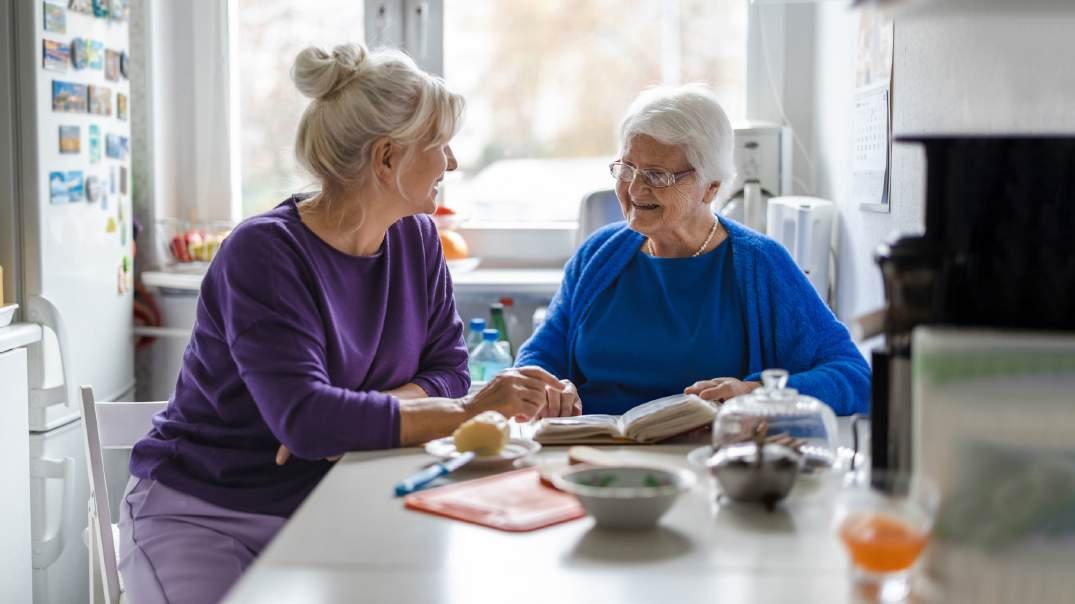
This year, we were proud to launch the Shaftesbury Suffolk Memory and Dementia Support service, which supports people with memory concerns and dementia and those caring for family or friends in Suffolk.
Suffolk is the fastest-ageing county in the country, with 10,800 people reported to be living with dementia in December 2024. That number is expected to increase to 23,000 by 2040 according to the Suffolk Joint Strategic Needs Assessment (JSNA).
To meet this huge need, the service (jointly funded by NHS Suffolk and North East Essex ICB and Suffolk County Council) aims to be the one place people can turn to for information and support.
Since June, the service has been open to anyone living in Suffolk and by the end of August more than 1,118 people had registered. When someone reaches out to the service, they are met with a trained memory and dementia advisor who takes the time to listen, offer guidance and respond with genuine empathy. Whether over the phone
or during a home visit, advisors provide practical information that can make a real difference, from helping clients to recognise early signs of dementia to connecting them with other services.
Based at Shaftesbury’s Icanho in Suffolk, the new service is already making a real impact. People who have reached out are sharing positive feedback, with one person telling us, ‘Knowing your organisation is there, willing to help in the longer term and has all the experience and contacts will help me to face what is to come next and make that all the more bearable.’
Nickie, one of the service’s memory and dementia advisors, said: ‘The service we offer is vital for those living with dementia and their loved ones. It has the potential to change lives for the better and I’m thrilled to be a part of it.’
If you know someone that could benefit from our service, you can find more information at shaftesburygroup.org/dementia or you can call 0808 281 5804 to speak to a member of the team.
You can take advantage of our free Will writing offer and get expert advice from our partners at Octopus Legacy.
Our free service provides an easy and convenient way to write your Will, giving you peace of mind that your wishes will be respected. Whilst there is no obligation to include Shaftesbury in your Will, choosing to do so would be an incredibly generous gesture that will help us continue our services for generations to come.
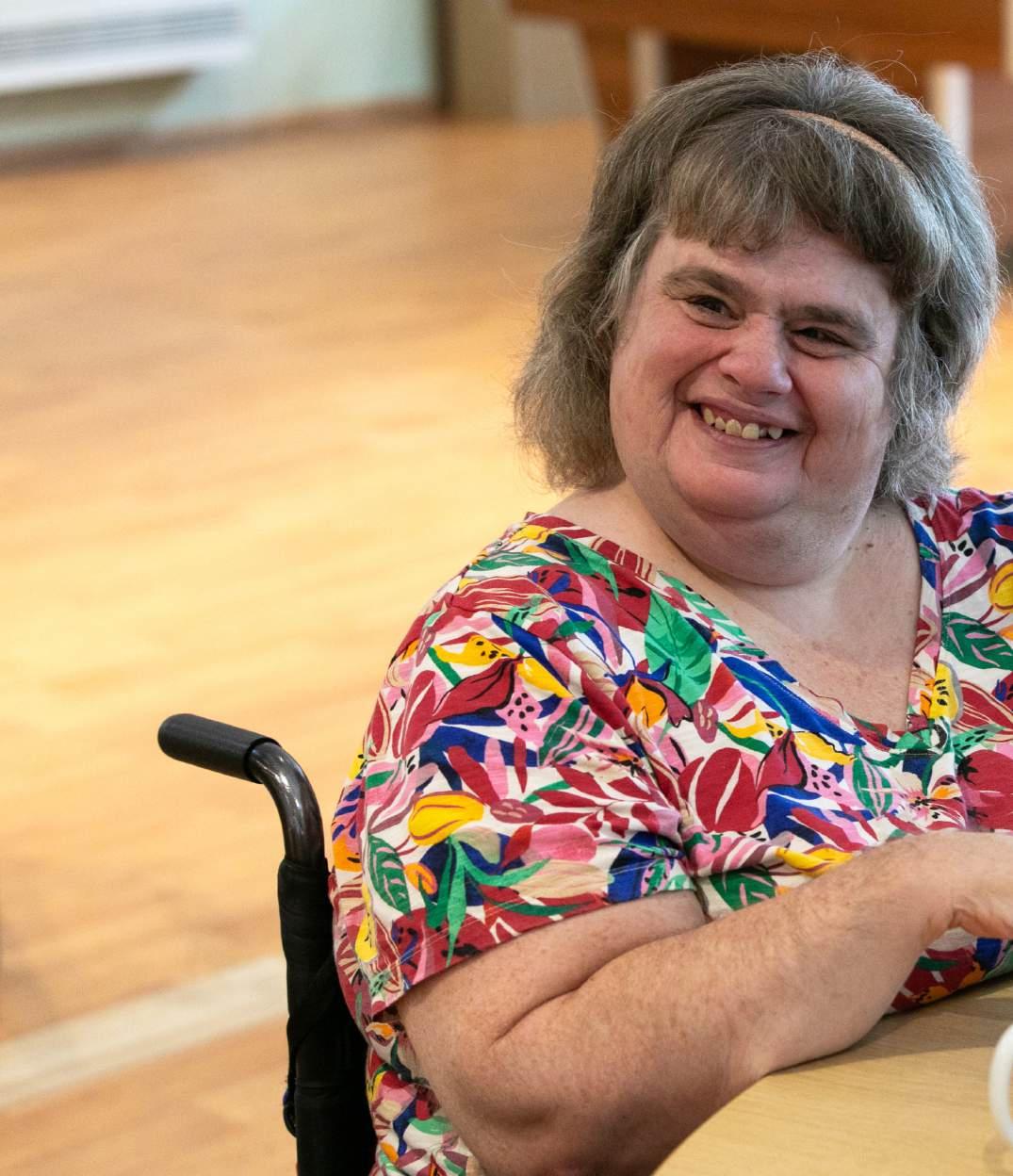
If you sign up to our service you will receive:
• A free Will written by a local qualified solicitor of your choice
• A free visit or phone call to write your Will from the comfort of your own home
• A free online service that enables you to make your Will in less than 30 minutes